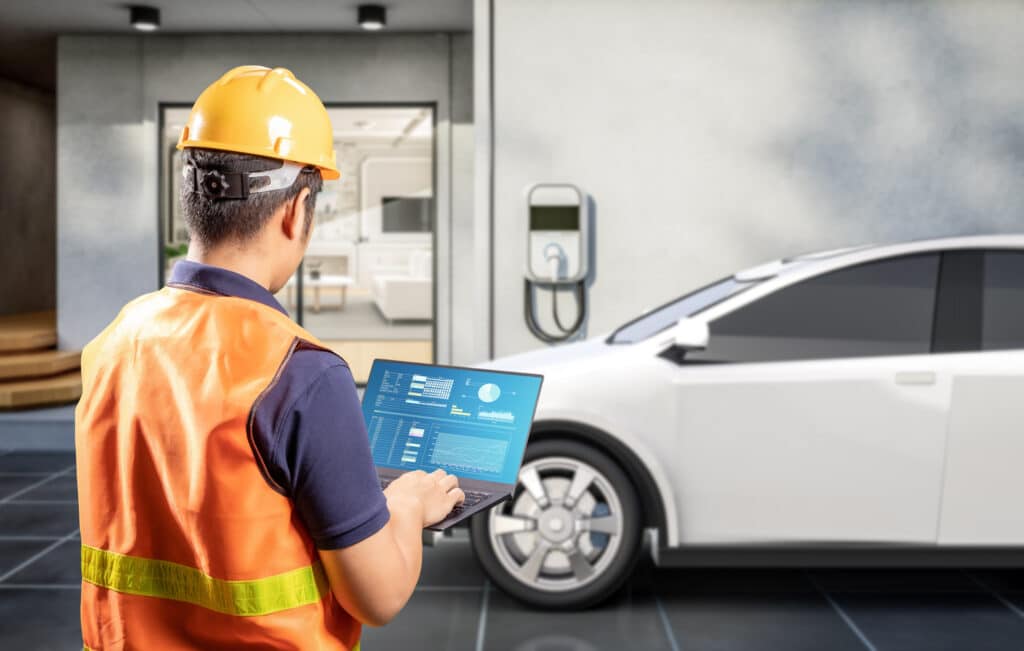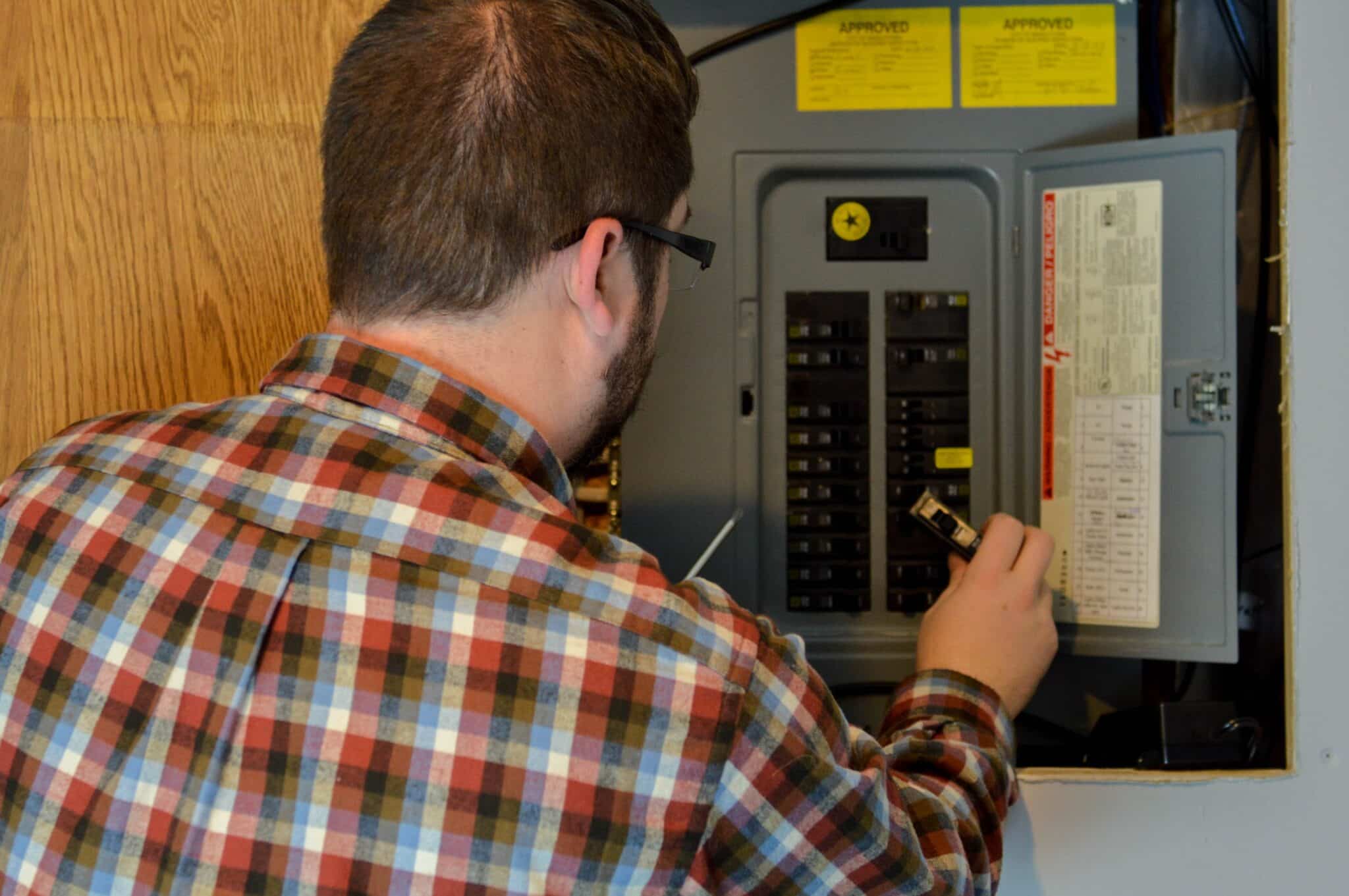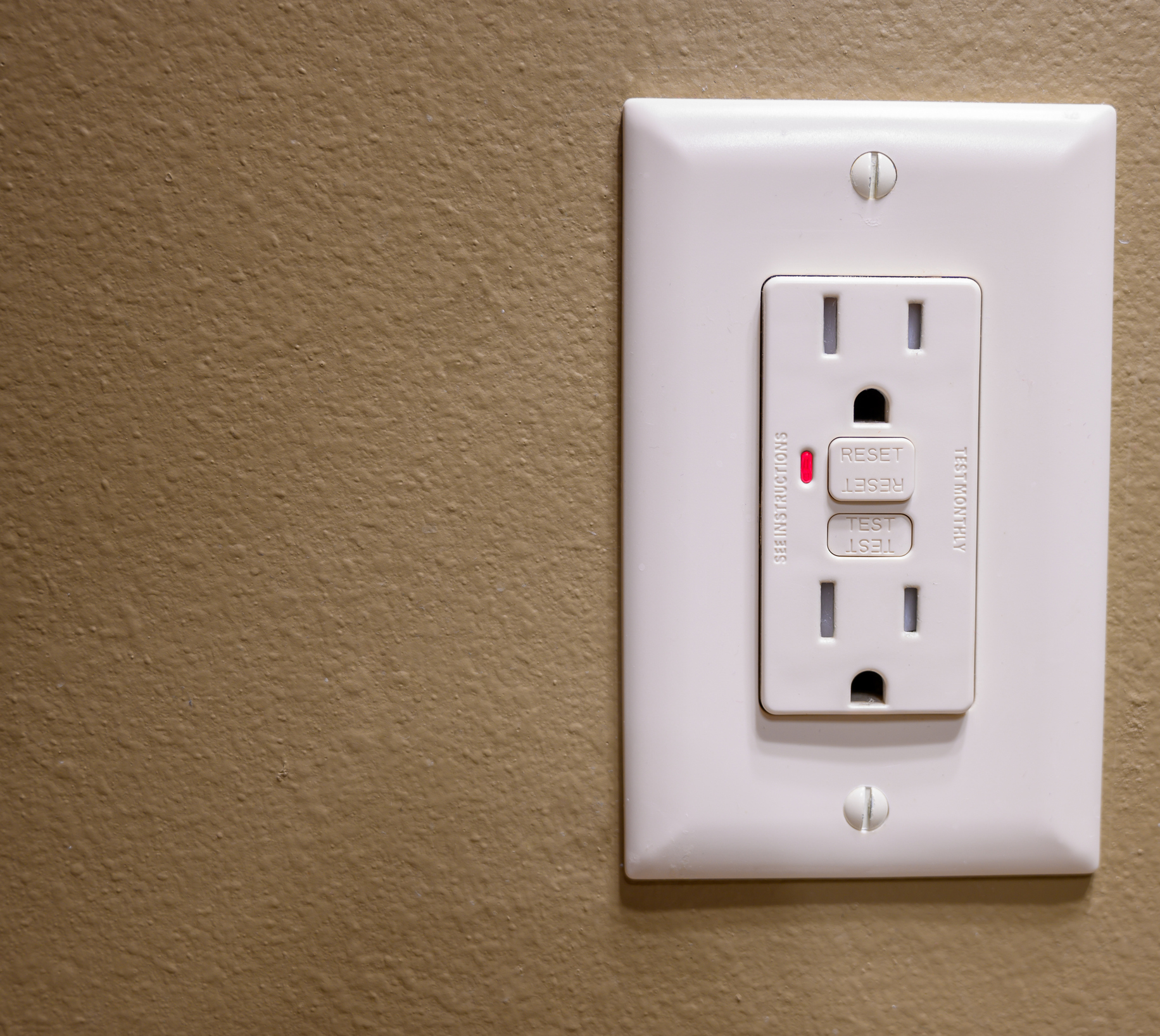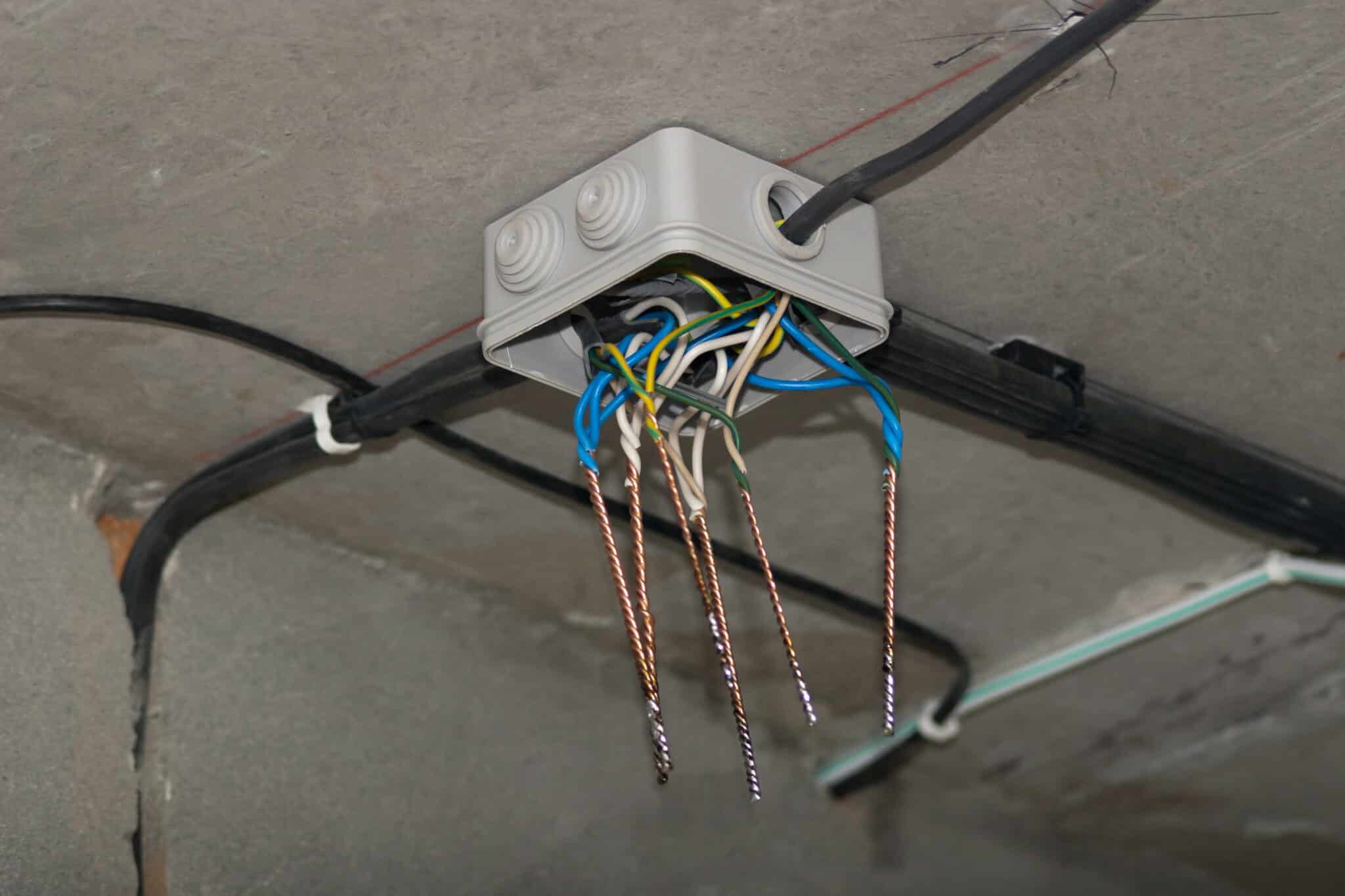An EV charger installation at home offers an efficient and cost-effective solution, eliminating the need for frequent trips to public charging stations. Electric vehicles (EVs) are becoming more popular than ever, and homeowners are looking for convenient ways to keep their cars charged. As we move into 2025, the demand for home charging solutions continues to grow, making now the perfect time to upgrade your home’s electrical system.
For residents in Colleyville, TX, installing a home EV charger is a smart investment. With the increasing number of EV owners, public charging stations may become more crowded, leading to longer wait times. Having a personal charging station ensures that your vehicle is always ready to go when you need it.
Additionally, 2025 is shaping up to be a landmark year for electric vehicles, with new models hitting the market and government incentives making home charging more affordable. Whether you’re considering an EV for the first time or already own one, installing a charger at home provides long-term convenience and financial benefits.
In this guide, we’ll explore why an EV charger installation is essential for homeowners in 2025. From cost savings to increased property value, we’ll cover everything you need to know about making the switch to home charging.
The Rising Demand for EVs in 2025
The shift toward electric vehicles (EVs) is accelerating, with 2025 expected to be a pivotal year for EV adoption. Automakers are rolling out new models with improved range and faster charging capabilities, making EV ownership more practical than ever. As a result, more homeowners are considering an EV charger installation to keep up with this growing trend.
Government policies are also driving this shift. Federal and state incentives continue to support EV purchases and home charging installations. Texas has been making strides in expanding EV infrastructure, but public charging stations can’t always meet demand. In cities like Colleyville, TX, having a home charger ensures you’re not stuck waiting for an available public station.
Another factor influencing the surge in EV adoption is the rising cost of gasoline. Many drivers are making the switch to electric vehicles to avoid fluctuating fuel prices and enjoy long-term savings. By installing a home EV charger, homeowners can take full advantage of lower electricity rates, especially during off-peak hours.
As 2025 approaches, preparing for an EV-friendly future is essential. Investing in a home charging solution now means staying ahead of the curve while maximizing convenience, savings, and efficiency. With more EVs on the road, home charging is quickly becoming a necessity rather than a luxury.

Benefits of Installing an EV Charger at Home
Installing an EV charger at home offers a range of benefits, making it a smart investment for homeowners in 2025. As more people transition to electric vehicles, having a personal charging station provides unmatched convenience, cost savings, and even an increase in property value.
One of the biggest advantages is charging convenience. Instead of relying on public charging stations, which can be crowded or far from home, a personal EV charger allows you to charge your vehicle overnight. This means you start each day with a full battery, eliminating the stress of finding an available charging spot.
Another key benefit is long-term cost savings. While public charging stations often have higher per-kilowatt-hour costs, home charging is much more affordable. Many energy providers offer time-of-use rates, allowing homeowners to charge their EVs during off-peak hours for even greater savings. Over time, this can significantly reduce the overall cost of vehicle ownership.
Additionally, an EV charger installation can increase your home’s value. With the growing demand for electric vehicles, more homebuyers are looking for properties with built-in charging solutions. A professionally installed EV charger can make your home more attractive to future buyers, providing a return on investment.
As the world moves toward sustainable transportation, having a home charging station is becoming essential. With benefits ranging from daily convenience to financial savings, installing an EV charger in 2025 is a forward-thinking decision for any homeowner.
Types of Home EV Chargers
When considering an EV charger installation, understanding the different types of chargers is essential. Home EV chargers come in two primary categories: Level 1 and Level 2 chargers. Each option has unique benefits depending on charging speed, vehicle type, and home electrical capacity. Additionally, newer smart chargers provide even greater efficiency and control, making them a popular choice among EV owners.
Level 1 Chargers: Slow but Accessible
Level 1 chargers use a standard 120-volt household outlet, making them the easiest option for homeowners. No special wiring or installation is required, and they can charge any EV right out of the box. However, the biggest drawback is speed. These chargers typically add only 3 to 5 miles of range per hour, meaning a full charge can take over 24 hours for many EV models. Level 1 chargers work best for plug-in hybrid vehicles or EV owners with short daily commutes.
Level 2 Chargers: Faster and More Efficient
Level 2 chargers operate on a 240-volt circuit, allowing them to charge four to ten times faster than Level 1 chargers. They can provide 25 to 50 miles of range per hour, making them the ideal choice for fully electric vehicles. Since they require higher power levels, a professional EV charger installation is necessary to ensure proper wiring, circuit capacity, and compliance with local electrical codes in Colleyville, TX.
In addition to speed, Level 2 chargers provide greater flexibility. Many models come with adjustable power settings, allowing homeowners to optimize charging times based on electricity rates. This can lead to significant energy savings over time, especially when charging during off-peak hours.
Smart Chargers: The Future of EV Charging
For those looking for the most advanced home charging experience, smart EV chargers offer enhanced convenience and control. These chargers connect to Wi-Fi or Bluetooth, allowing homeowners to monitor charging sessions remotely through a mobile app.
Some smart chargers can:
- Schedule charging during off-peak hours to lower electricity costs.
- Track energy usage for better efficiency and budgeting.
- Integrate with solar panels, reducing reliance on the power grid.
As more EV owners seek efficient and sustainable charging solutions, smart Level 2 chargers are becoming a top choice. They provide a seamless, automated charging experience, making EV ownership even more convenient.
For homeowners in Colleyville, TX, choosing the right EV charger depends on their driving habits, energy goals, and vehicle type. While Level 1 chargers work for occasional use, a professionally installed Level 2 or smart charger ensures fast, reliable, and cost-effective home charging in 2025 and beyond.
How an EV Charger Improves Energy Efficiency
Installing an EV charger at home does more than just provide convenience—it also helps homeowners improve energy efficiency and reduce electricity costs. With advancements in smart charging technology and the ability to leverage off-peak electricity rates, an EV charger can make your home’s energy use more sustainable and cost-effective.
Charging During Off-Peak Hours
One of the key ways a home EV charger enhances efficiency is by allowing homeowners to charge during off-peak hours. Many utility providers offer time-of-use (TOU) pricing, where electricity rates are lower during non-peak hours, typically late at night. By scheduling your EV to charge overnight, you can significantly reduce electricity costs while avoiding strain on the power grid.
Smart Chargers Optimize Energy Use
Modern smart EV chargers take energy efficiency to the next level. These chargers connect to your home’s Wi-Fi, enabling real-time energy monitoring and automated charging. Some key benefits of smart chargers include:
- Load balancing – Distributes power efficiently if multiple appliances or chargers are in use.
- Remote monitoring – Allows you to track energy consumption through a mobile app.
- Scheduled charging – Ensures charging occurs when electricity rates are lowest.
By using a smart charger, homeowners can better manage their energy consumption, reducing unnecessary power waste while keeping their EV fully charged.
Pairing EV Chargers with Solar Panels
For an even greener energy solution, some homeowners integrate their EV charger installation with a solar panel system. This setup allows EVs to be charged using clean, renewable energy, reducing reliance on the electrical grid and lowering monthly utility bills. Some smart chargers even detect when solar energy production is at its peak and prioritize charging at that time.
As more homeowners in Colleyville, TX look for ways to improve energy efficiency, an EV charger provides a practical solution. Whether through off-peak charging, smart technology, or solar integration, an EV charger helps optimize electricity use while promoting long-term savings and sustainability.
Why Professional EV Charger Installation Matters
While some homeowners may consider installing an EV charger themselves, professional installation is the safest and most reliable option. A home charging system requires proper electrical wiring, circuit upgrades, and compliance with local codes. Hiring an expert ensures the charger functions efficiently while minimizing the risk of electrical issues.
Ensuring Safety and Code Compliance
An EV charger installation involves working with high-voltage electricity, which can be dangerous if not handled correctly. A professional electrician ensures the installation meets National Electrical Code (NEC) standards and local regulations in Colleyville, TX. This prevents potential hazards such as:
- Overloaded circuits, which can cause electrical failures.
- Improper grounding, leading to fire risks.
- Faulty connections, which may reduce charging efficiency.
A professional will assess your home’s electrical system and determine whether upgrades, such as a dedicated 240-volt circuit, are needed to handle the charger’s power requirements.
Avoiding Common DIY Mistakes
Many DIY installations result in errors that can damage both the charger and the vehicle. Some of the most common mistakes include:
- Using the wrong circuit breaker size.
- Installing an outlet too far from the EV parking spot.
- Failing to secure proper permits for the work.
These errors can lead to costly repairs and even void warranties on your charger or EV. A professional installation eliminates these risks, ensuring your system works flawlessly from the start.
Buffalo Electric: Your Trusted EV Charger Installer
For homeowners in Colleyville, TX, Buffalo Electric provides expert EV charger installations that are safe, efficient, and code-compliant. Our team handles everything from permitting and wiring upgrades to charger setup and testing, ensuring your home is EV-ready with minimal hassle.
EV Charger Installation Process: What to Expect
If you’re considering an EV charger installation, knowing what to expect can help you prepare for a smooth setup. A professional installation ensures your charger is properly installed, meets safety standards, and functions efficiently. The process typically involves an initial consultation, permitting, electrical upgrades, and final testing.
Initial Consultation and Site Assessment
The first step is a home evaluation by a licensed electrician. They will check your electrical panel capacity to determine if it can support a Level 2 charger. If upgrades are needed, they’ll recommend solutions to prevent circuit overloads. The electrician will also help determine the best charger placement, ensuring easy access and compliance with local regulations in Colleyville, TX.
Permits and Approvals
Many areas require permits for electrical work to ensure safety and compliance. Your installer will handle the paperwork and schedule any required inspections. Following National Electrical Code (NEC) standards and local guidelines ensures that your EV charger is legally approved and safe for long-term use.
Installation and Electrical Upgrades
Once the necessary approvals are in place, the electrician will begin the installation. This includes setting up a dedicated 240-volt circuit, running new wiring if needed, and mounting the charging unit in your preferred location. If your electrical panel lacks the capacity to support the charger, an upgrade may be necessary.
Final Testing and Walkthrough
After the installation, the electrician will conduct safety tests to ensure the charger is functioning correctly. They will verify that the system is delivering the right voltage to your vehicle and explain how to use and maintain the charger. With a professional EV charger installation, you can enjoy seamless and efficient home charging.
Choosing the Right EV Charger for Your Home
Selecting the best EV charger installation for your home is essential to ensure fast, reliable, and cost-effective charging. With multiple options available, homeowners should consider factors such as power capacity, smart features, and long-term compatibility with future EV models. A properly chosen and installed charger enhances the overall electric vehicle experience while maximizing efficiency.
Understanding Power Capacity and Charging Speed
One of the most important factors in an EV charger installation is power capacity. Level 1 chargers, which plug into a standard 120-volt outlet, offer the slowest charging speeds, making them suitable only for plug-in hybrids or occasional use. Level 2 chargers, on the other hand, require a 240-volt circuit and provide significantly faster charging, making them the preferred option for most EV owners.
A professional EV charger installation ensures that the electrical system in your home can handle the power requirements of a Level 2 charger. Upgrading to a higher-amperage charger can also future-proof your home, allowing it to support newer EV models with larger battery capacities.
Smart EV Chargers: Features and Benefits
Modern EV charger installations include smart technology that enhances user experience and efficiency. Smart chargers connect to Wi-Fi or Bluetooth, allowing homeowners to:
- Monitor charging sessions in real-time through a mobile app.
- Schedule charging during off-peak hours to reduce electricity costs.
- Track energy usage and optimize power consumption.
Some advanced smart chargers also integrate with solar panels, further reducing reliance on grid electricity and promoting sustainable energy use. When selecting an EV charger installation, choosing a smart model can provide long-term savings and greater control over charging habits.
Future-Proofing Your EV Charger Installation
Investing in a high-quality EV charger installation ensures that your home is prepared for future advancements in electric vehicles. As battery technology improves, EVs will support faster charging speeds, making it essential to install a charger with expandable power capacity. Additionally, ensuring compatibility with multiple EV brands can make your home more attractive to potential buyers in the future.

FAQ: EV Charger Installation in 2025
1. How long does an EV charger installation take?
A professional EV charger installation typically takes two to four hours, depending on your home’s electrical system. If electrical panel upgrades or new wiring are required, the installation may take longer. A licensed electrician will assess your home beforehand to provide a more accurate timeline.
2. Will installing an EV charger increase my electricity bill?
Yes, charging an EV at home does increase electricity usage, but it is often much cheaper than relying on public charging stations or gasoline. Many utility providers offer time-of-use (TOU) rates, allowing homeowners to charge their vehicles during off-peak hours at a lower cost. A smart EV charger installation can help optimize charging times to minimize expenses.
3. Do I need a permit for an EV charger installation in Colleyville, TX?
Yes, most cities, including Colleyville, TX, require an electrical permit for a Level 2 EV charger installation. This ensures the work meets National Electrical Code (NEC) standards and local building regulations. Professional electricians handle the permit application process to ensure compliance.
4. Can I install an EV charger outdoors?
Yes, many EV chargers are designed for outdoor use and come with weatherproof protection. However, proper placement is key. A professional installer ensures that outdoor units are grounded correctly, protected from the elements, and positioned for easy access to your vehicle.
5. How do I schedule an installation with Buffalo Electric?
Homeowners in Colleyville, TX can contact Buffalo Electric to schedule a consultation. Our team will assess your electrical system, recommend the best charging solution, handle permit approvals, and ensure a safe, efficient setup.












